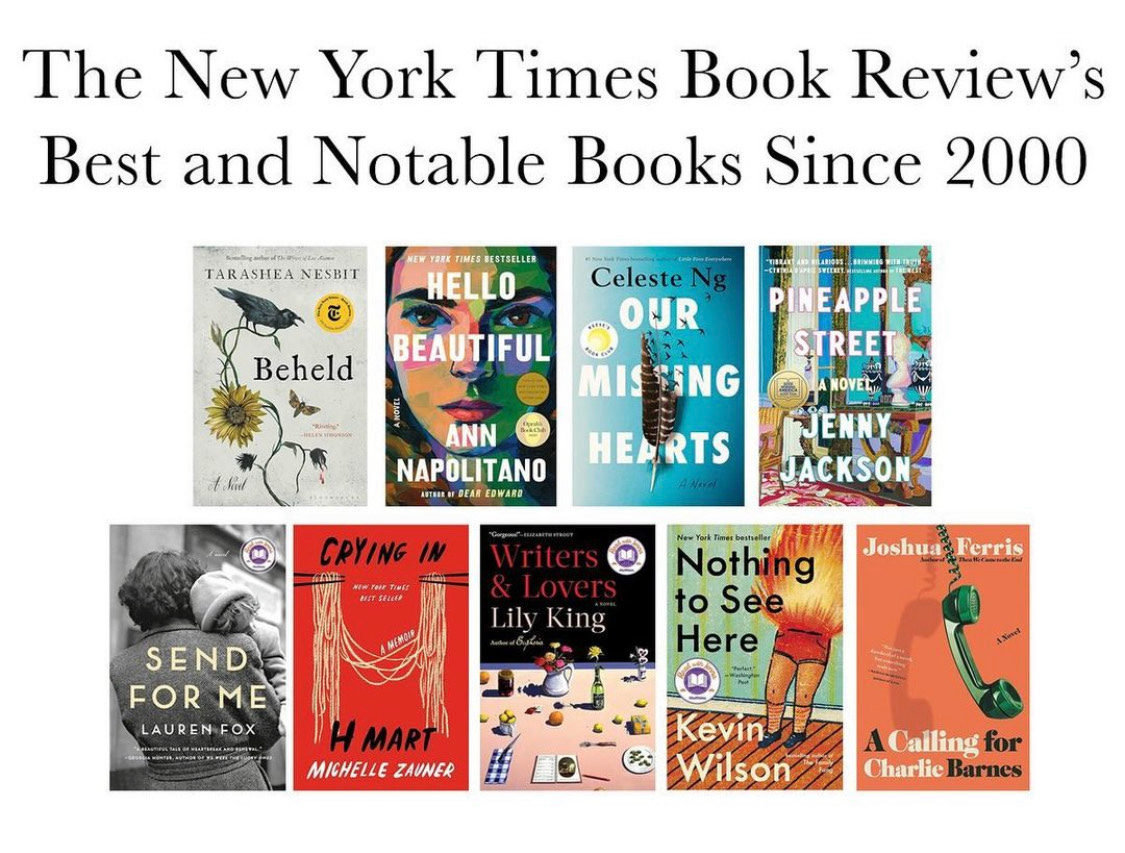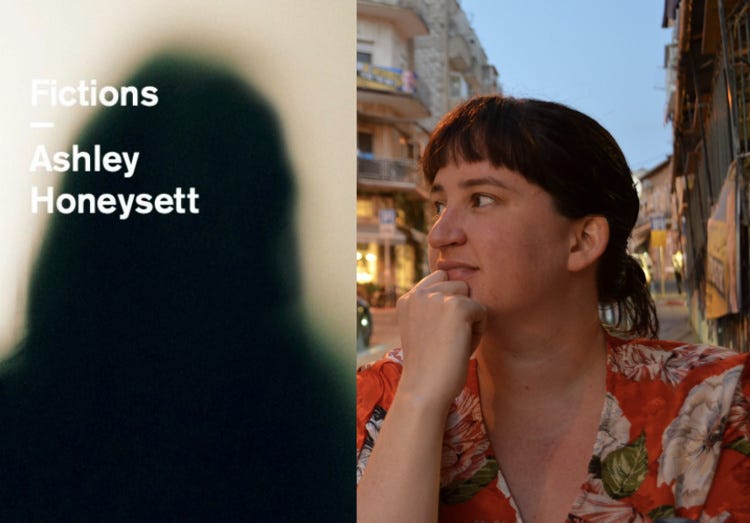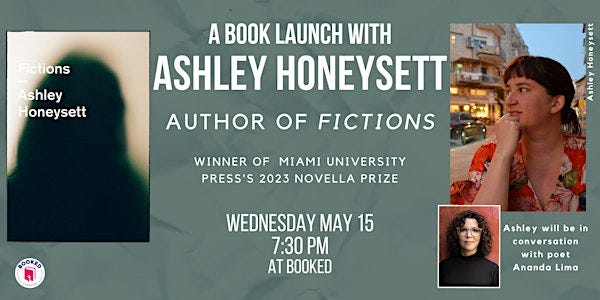Inspired by Rage (and Curiosity)
a writing prompt to get you going + talk of my new favorite book, FICTIONS by Ashley Honeysett
Hello, dear writing buddies,
First some really good news: my novel, Beheld, was selected by The New York Times as one of the best books from the last 25 years (!!!) which brought me to tears. I am not an easy crier. Thanks for the tears, NYT.

Fictions by Ashley Honeysett
Next, to the main idea of the week, which is how much can be learned and considered about our writing, by reading Ashley Honeysett’s Fictions.
What would happen if you went back to your rejected, unpublished writings and saw them through the eyes of a character that resembles yourself but with a more steely eye? What if you explored why those poems, essays, or stories were rejected, and wrote that exploration on the page?
Those questions are part of the terrific premise of one of my favorite reads of 2024, the newly published novella, Fictions, by Ashley Honeysett, out this week from Miami University Press. Honeysett gave an inspiring reading at Miami last week for her book launch. (Miami University Press hosts a novella contest each year, and Honeysett’s Fictions won this year, but another great novella they published was Garth Greenwell’s Mitko, which transformed into his first novel.)
After the reading, I excitedly bought the book, went home, and despite needing to wake early in the morning and do many other things, I read the entire book in less than 24 hours.
The main character of Honeysett’s novella is an ex-pat living in Ireland, who writes. She is in writing workshops and submits stories, but all are rejected. Meanwhile, she becomes pregnant, considers her real family alongside the fictional families she has created, and generally moves through memories and the present, remembering stories with her mother, who said the kinds of things one might find too much to say to a child, but our main character seems to mostly appreciate. She remembers and frets over her sister, from the first restaurant job she had in their hometown, that exposed her to cocaine, to her present struggles with addiction. But at the heart, too, is this wild, seemingly reckless adoration and appreciation for writing. Writing even though time and time again feedback in the workshop and from editors, is less than positive.
The voice is in no way self-pitying. Instead, it’s humorous and self-deprecating. The narrator can see the flaws that got it rejected. But, also, as the novella continues, we become entranced with these other stories, the fictions, that seem very possibly very close to the main character’s life, even though she has described them as stories.
I love how this book’s premise is a method for deep reflection on what makes a good story. In several instances, we hear the rejected short story in a better form than how it was submitted for publication. For instance, in the opening, the narrator describes a story she wrote about a mother, grandmother, and child.
“In the story, we all go to an outlet mall….” sets up the slippage between fiction and real life and: “In the story, Grandma does the kinds of things she really would have done.”
And yet, the narrator tells us about the rejections, “That story got rejected twenty-seven times…The story is shit.” What changes in the novella’s nested version of this story, and the story the narrator submitted for publication? Skillfully, the narrator questions and interrogates her earlier story’s weaknesses. The narrator edits them for us, saying things like: “Everything I gave you in just a few lines…took pages in the story. I hadn’t yet learned the most important thing, which is summarize.”
This book, to me, is companions with Rachel Cusk, in Outline, for the metaconversations around writing, and with Dept of Speculation by Jenny Offill, for the discussion of the want to be an art monster, the narrative through line of child and partner, and the nice amount of white space between sections. I love the confidence of a book with two sentence sections, taking up an entire page.
I love that the novella takes us into the process of self-reflection about the rejected works. And I love how the present storyline lives alongside the past stories.
Over time in the book, the narrator becomes pregnant and births a child who grows into a toddler. Family and personal relationships change or notably do not change. I won’t spoil it for you by telling you what I think about the ending of the book, but to me, it hits the right note and sings an accurate tune of how our writing, and our relationship to our writing, can change over time. The situations that produce such changes in perception are shown. I admire the narrator’s unflinching observations about her earlier writing, but also how she applies that to understanding her family, her writing group, her marriage, and all of her life.
Inspired by Rage
When Honeysett was asked after the reading, what inspired the book, she said, “Rage.” I love this. Honeysett took that real-life rage of rejections and turned it into curiosity. On the page, there is very little score-settling or an attempt to rage at those who rejected the stories. Instead, it’s real-time curiosity about the stories—their strengths, their faults.
If you are near Evanston next week, I highly rec hearing Ashley read and chat about her new book next week at Booked, 506 Main Street Evanston, IL 60202.
A Writing Prompt Inspired by Fictions
Fictions inspired this week’s writing prompt, which is below, on the other side of the paywall, b/c I’m making a book of the writing prompts I’ve created over the years.
Keep reading with a 7-day free trial
Subscribe to TODAY YOU WILL WRITE to keep reading this post and get 7 days of free access to the full post archives.



